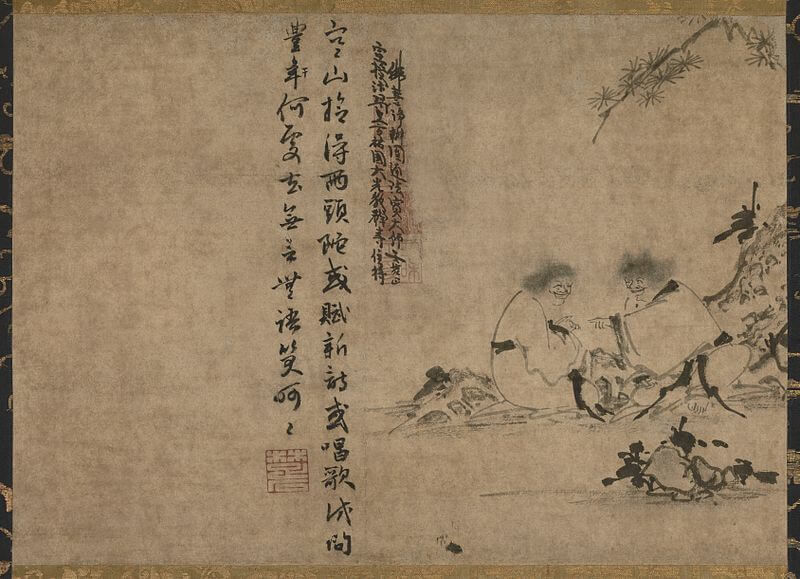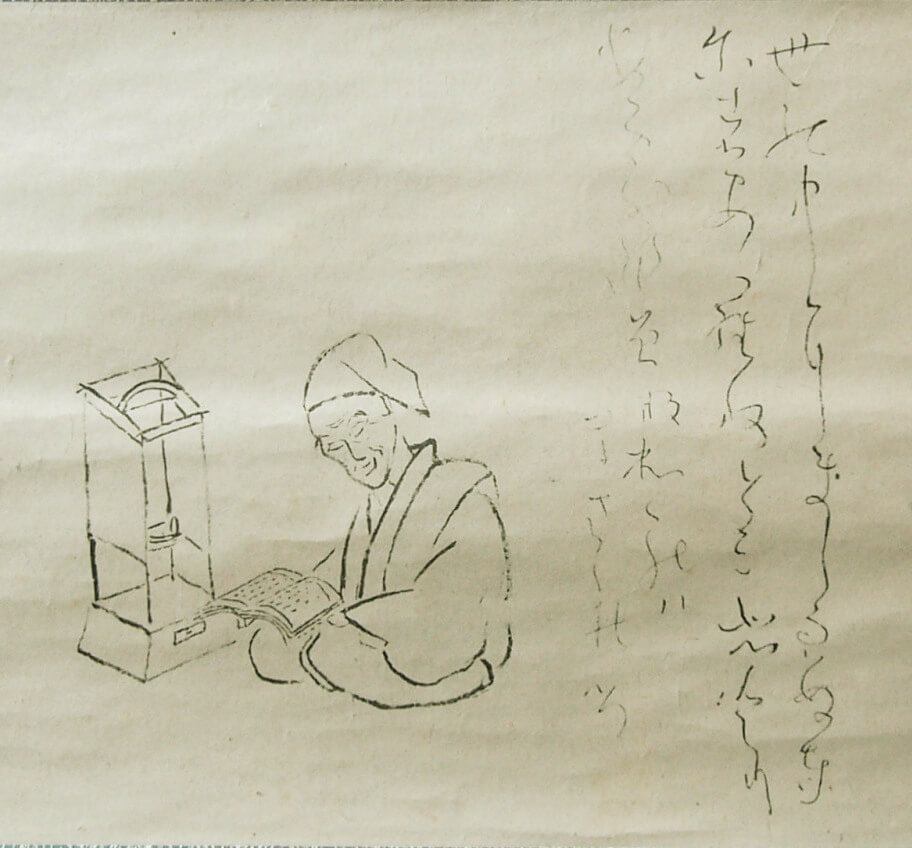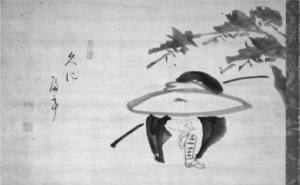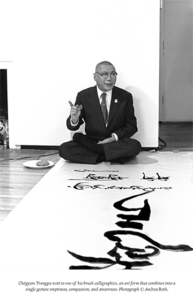Jump to sections on this page:
Recent Releases | Chan and Zen Poetry | Indian Poetry | Tibetan Poetry | Southeast Asian Poetry | Contemporary Buddhist Poetry
Jump to sections on this page:
Recent Releases | Chan and Zen Poetry | Indian Poetry | Tibetan Poetry | Southeast Asian Poetry | Contemporary Buddhist Poetry
By Trent Walker
Until Nirvana’s Time presents forty-five Dharma songs, whose soaring melodies have inspired Cambodian Buddhist communities for generations. Whether recited in daily prayers or all-night rituals, these poems speak to our deepest concerns—how to die, how to grieve, and how to repay the ones we love.
Introduced, translated, and contextualized by scholar and vocalist Trent Walker, this is the first collection of traditional Cambodian Buddhist literature available in English. Many of the poems have been transcribed from old cassette tapes or fragile bark-paper manuscripts that have never before been printed. A link to recordings of selected songs in English and Khmer accompanies the book.
Click here to listen to songs from the book, performed by Trent Walker.
The Poetry of Zen, edited by Sam Hamill & J.P. Seaton
Here, poet-translators Sam Hamill and J.P. Seaton offer up a rich sampling of poems from the Chinese and Japanese Zen traditions, spanning centuries of poets, from Lao Tzu to Kobayashi Issa. While a few of the poets included were not Zen practitioners, their poems nonetheless illustrate a strong Zen influence. Hamill and Seaton open the anthology with an overview of the Zen poetic tradition, and provide historical, philosophical, and biographical context to the works throughout, showing readers how poetry “is one of the many paths to enlightenment” (7). With a compact trim size, this collection makes a wonderful travel companion.

By Indara (因陀羅) (Yintuoluo) (Emuseum) [Public domain or Public domain], via Wikimedia Commons
The Poetry of Enlightenment: Poems by Ancient Chan Masters, by Chan Master Sheng Yen
Look inside the minds of enlightened masters with this collection of Ch’an teaching poems. Chan Master Sheng Yen offers commentary on ten poems by ancient Chinese Ch’an masters, selected both for their simplicity of language and depth of meaning. Written by Ch’an practitioners post-enlightenment, these poems touch on the experience of Ch’an, how to practice, cultivating the right attitude, and obstacles to avoid, as well as offering a glimpse into the state of mind of enlightenment.
The Complete Cold Mountain: Poems of the Legendary Hermit Hanshan, translated by Kazuaki Tanahashi & Peter Levitt
Capturing readers with its insightful, light, humorous, and often rebellious spirit, Hanshan’s Cold Mountain poems have long been enjoyed by Buddhists and non-Buddhists alike. This new translation of these centuries-old writings by Kaz Tanahashi and Peter Levitt presents readers not only the full body of poems in its entirety, but also provides a wealth of insight into the poets behind the poems, full Chinese text of the poems, historical context, and the Buddhist elements present throughout the collection. The translators’ deep appreciation for Hanshan shines through the collection. Translator Peter Levitt notes in the introduction, “Because of the compassionate discernment, profound tranquility, unexpected insight, and the occasional outrageous humor of his poetry, Kaz Tanahashi and I have gratefully considered Hanshan one of life’s treasured companions for fifty years. As a result of the kinship we feel with him, we gathered together, translated, and now offer readers the most complete version of the poet’s work to date in the English language” (2).
Widely admired both for his character and poetry, Ryokan remains one of the key poets of the Zen tradition. Though written in eighteenth century Japan, Ryokan’s poems seem to transcend time and space, with reflections on the human experience that are as relevant to today’s readers as they were centuries ago.

“Who says my poems are poems?
My poems are not poems.
When you know that my poems are not poems,
Then we can speak of poetry!”
*Image by Ryōkan (English: Replica before 1970) [Public domain], via Wikimedia Commons
$18.95 - Paperback
Dewdrops on a Lotus Leaf: Zen Poems of Ryokan, translated & edited by John Stevens
Providing brief biographical context, John Stevens introduces us to the world and work of Ryokan. The collection demonstrates the spirit of Ryokan’s Zen outlook, with poems covering the full spectrum of the human experience and focusing on “things deep inside the heart.” Throughout the text are ink paintings by Koshi no Sengai, a devotee of Ryokan, many of which include calligraphy of Ryokan’s verses.
$19.95 - Paperback
One Robe, One Bowl: The Zen Poetry of Ryokan, translated & introduced by John Stevens
In comparison to Dewdrops, this collection offers a more detailed introduction to the life of Ryokan and his relationship to Zen Buddhism. Ryokan was not married to one poetic style, and thus this collection is broken up into classical Chinese style poems, and Japanese waka and haiku, organized by season.
$18.95 - Paperback
Sky Above, Great Wind: The Life and Poetry of Zen Master Ryokan, translated by Kazuaki Tanahashi
For readers who want to take a really deep dive into Ryokan, this is the collection to read. Not only does Tanahashi present Ryokan’s poetry (organized chronologically), but he also offers selections of Ryokan’s calligraphy, maps of relevant sites for readers’ reference, a detailed biographical introduction, notes on individual poems, an analysis of Ryokan’s poetic forms, and a collection of anecdotes about the beloved Zen poet.
Saigyō, the Buddhist name of Fujiwara no Norikiyo (1118–1190), is one of Japan’s most famous and beloved poets. He was a recluse monk who spent much of his life wandering and seeking after the Buddhist way. Combining his love of poetry with his spiritual evolution, he produced beautiful, lyrical lines infused with a Buddhist perception of the world.

This world—
strug jewels
of dew
on the frail thread
a spider spins.
Gazing at the Moon: Buddhist Poems of Solitude, translated by Meredith McKinney, presents over one hundred of Saigyō’s tanka—traditional 31-syllable poems—newly rendered into English by renowned translator Meredith McKinney. This selection of poems conveys Saigyō’s story of Buddhist awakening, reclusion, seeking, enlightenment, and death, embodying the Japanese aesthetic ideal of mono no aware—to be moved by sorrow in witnessing the ephemeral world.
Check out the interview with Meredith McKinney on the Books on Asia Podcast!
Songs of the Sons and Daughters of Buddha: Enlightenment Poems from the Theragatha and Therigatha, translated by Andrew Schelling and Anne Waldman
More than two thousand years ago, the earliest disciples of the Buddha put into verse their experiences on the spiritual journey—from their daily struggles to their spiritual realizations. Over time the verses were collected to form the Theragatha and Therigatha, the “Verses of Elder Monks” and “Verses of Elder Nuns” respectively. Renowned poets Andrew Schelling and Anne Waldman have translated the most poignant poems in these collections, bringing forth their visceral, immediate qualities.
Gendun Chopel: Tibet’s Modern Visionary, by Donald S. Lopez Jr.
The debut title in Shambhala’s Lives of the Masters series, Gendun Chopel offers an in-depth look at the life and writings of the Tibetan Buddhist visionary, by scholar Donald Lopez. While much of this book is a biographical exploration of Gendun Chopel, Lopez also provides a wealth of Gendun Chopel’s writings, believing that “one learns a great deal about an author by actually reading what they wrote” (x). More than a Buddhist visionary, Gendun Chopel is considered one of Tibet’s greatest poets of the twentieth century, and thus included among these writings is a significant selection of poetry. As a student and writer of poetry throughout his life, he mastered many poetic forms, and often composed poems spontaneously.
The relatives and servants we meet are but guests on market day.
The rise of power, wealth, and arrogance are pleasures in a dream.
Happiness alternates with sorrow, summer changes to winter.
Thinking of this, a song spontaneously came to me.
$39.95 - Paperback
The Rain of Wisdom: The Essence of the Ocean of True Meaning, translated by the Nalanda Translation Committee
Translated under the direction of Chogyam Trungpa Rinpoche, this collection offers more than one hundred vajra dohas of the Tibetan Kagyu lineage, by more than thirty lineage holders, including Tilopa, Milarepa, and the Sixteenth Gyalwa Karmapa. Contained in these songs are teachings on karma, bodhicitta, devotion, and the Buddhist path. Trungpa Rinpoche writes in his Foreword, “these songs should be regarded as the best of the butter which has been churned from the ocean of milk of the Buddha’s teachings” (xiii).
$39.95 - Paperback
Tibetan Literature: Studies in Genre
Renowned scholar Roger Jackson takes on the subject in the chapter ‘Poetry in Tibet: Glu, mGur, sNyan ngag and “Songs of Experience”. He explores Tibetan poetry from its earliest forms to the present including Trungpa Rinpoche and Allen Ginsberg.
The rise of power, wealth, and arrogance are pleasures in a dream.
Happiness alternates with sorrow, summer changes to winter.
Thinking of this, a song spontaneously came to me.
Jamgon Kongtrul Lodro Thaye’s ten volume Treasury of Knowledge includes the volume Indo-Tibetan Classical Learning & Buddhist Phenomenology (Book Six, Parts One & Two). Chapter eight catalogues the elements and components of Tibetan poetry including the types of composition (metrical, prose, and a mix of the two) as well as poetic ornaments.
Songs of Spiritual Experience: Tibetan Buddhist Poems of Insight and Awakening, selected & translated by Thupten Jinpa & Jas Elsner
Published in English for the first time, this collection of fifty-two poems by realized masters, from classic to contemporary, represents the full range of Tibetan Buddhist lineage traditions. Organized thematically, these songs address impermanence, guru devotion, emptiness, and other key themes of Tibetan Buddhism. Also included are a detailed glossary and exploration of the Tibetan tradition of nyamgur (“experiential songs”), offering a comprehensive look at poetry’s role within Tibetan Buddhism. A foreword for the collection is provided by His Holiness the Dalai Lama.
The introduction forms one of the best introductions to Tibetan poetry available. Here is a taste:
"Many of the greatest Tibetan poems demand of the reader an attentiveness to a complex line of thought and philosophical reasoning, albeit in the heightened forms of verse combined with the inspiration of imagery. For the poet, the ideal reader is one whose reading of the poem becomes itself an act of meditation, penetrating the depths of human experience with an insight tempered by sensitivity.
Listen to Thubten Jinpa discuss the Songs of Spiritual Experience
Watch this episode from the Tsadra Foundation’s Translation and Transmission conference in 2017 with leading scholars of Tibetan poetry.

While Trungpa Rinpoche was a Tibetan, his poetry is unique and has therefore been included in the contemporary Buddhist poetry section.
When Chogyam Trungpa Rinpoche arrived in the United States, he asked, “Where are your poets? Take me to your poets!” Not only was Trungpa Rinpoche a spiritual teacher, but he was also an avid poet and dharma artist. Below, we describe the differences between our multiple collections of his work:
$19.95 - Paperback
Timely Rain: Selected Poetry of Chogyam Trungpa
Timely Rain is a collection of new and previously published poems, edited and curated by David I. Rome. While First Thought Best Thought presents poems in roughly chronological order, this collection is organized thematically, with each thematic section in chronological order. This allows readers to more easily navigate the poems, while also witnessing the evolution of Trungpa’s expressiveness and state of mind. Editor David Rome reflects in his Afterword that “poetry is also a refuge for Trungpa, perhaps the only place where he is able to step out of all the roles and self-inventions and speak truthfully from—and to—his own heart” (193). Themes contained herein include loneliness, samsara and nirvana, love, and sacred songs.
$16.95 - Paperback
Mudra is a selection of spontaneous, celebratory poems of devotion written by Chogyam Trungpa Rinpoche between 1959 and 1971. Trungpa opens his collection with two translations of Jigme Lingpa and Patrul Rinpoche, explaining that “they are the vajra statement which frees the people of the dark ages from the three lords of materialism and their warfare.” Also included are ten traditional Zen oxherding pictures along with Trungpa’s unique commentary.
$24.95 - Paperback
First Thought Best Thought: 108 Poems
Dictated (Trungpa composed poems verbally to a scribe) around the time of his arrival in the United States, this collection of poems, with an introduction by Allen Ginsberg, encapsulates Trungpa’s creative energy. His vision of joining East and West shines through each poem, combining classical Tibetan poetic influences with a modern American poetic style. As the collection progresses chronologically, readers witness Trungpa’s increasing familiarity and comfort with American culture. The collection’s title pays homage to William Blake’s “First thought is best in Art, second in other matters,” while also invoking the notion of beginner’s mind. As Ginsberg writes in his introduction, here is an “amazing chance to see his thought process step by step, link by link, cutting through solidifications of opinions & fixations” (xv).
By Trent Walker
Until Nirvana’s Time presents forty-five Dharma songs, whose soaring melodies have inspired Cambodian Buddhist communities for generations. Whether recited in daily prayers or all-night rituals, these poems speak to our deepest concerns—how to die, how to grieve, and how to repay the ones we love.
Introduced, translated, and contextualized by scholar and vocalist Trent Walker, this is the first collection of traditional Cambodian Buddhist literature available in English. Many of the poems have been transcribed from old cassette tapes or fragile bark-paper manuscripts that have never before been printed. A link to recordings of selected songs in English and Khmer accompanies the book.
The First Free Women: Original Poems Inspired by the Early Buddhist Nuns, by Matty Weingast
Composed around the Buddha’s lifetime, the original Therigatha (“Verses of the Elder Nuns”) contains the poems of the first Buddhist women: princesses and courtesans, tired wives of arranged marriages and the desperately in love, those born into limitless wealth and those born with nothing at all. The authors of the Therigatha were women from every kind of background, but they all shared a deep-seated desire for awakening and liberation.
In The First Free Women, Matty Weingast has reimagined this ancient collection and created an original work that takes his experience of the essence of each poem and brings forth in his own words the struggles and doubts, as well as the strength, perseverance, and profound compassion, embodied by these courageous women.
Beneath a Single Moon: Buddhism in Contemporary American Poetry, edited by Kent Johnson & Craig Paulenich
For readers who prefer a more modern aesthetic, Beneath a Single Moon is a delightful read. This anthology features more than 250 poems by forty-five contemporary American poets, supplemented with essays exploring spiritual poetic practice. Among those included in this collection are John Cage, Diane di Prima, Norman Fischer, Allen Ginsberg, Susan Griffin, Anne Waldman, Philip Whalen, and Gary Snyder, who also provides the book’s introduction. Offering a refreshing look at spiritual poetry, the editors explain that “the variousness of the work [stands] very much at odds with the fairly common notion of American ‘Zen’ poetry as a literary remnant of the sixties, with derivative, and generally identifiable ‘Eastern’ criteria. It [is] even more intimately at odds, perhaps, with the well-diffused perception—at least in the West—of Buddhism as collectivizing and inimical to individual spirit” (xv-xvi).
After Ikkyu & Other Poems, by Jim Harrison
Those who find spiritual poetry can become too rigid or serious will find this to be a refreshing departure from the norm. These raw and often pithy poems by novelist Jim Harrison draw inspiration from his many years of Zen practice, and in perfect Zen spirit, they reveal a poet and practitioner who does not take himself too seriously. In his introduction Harrison explains, “It doesn’t really matter if these poems are thought of as slightly soiled dharma gates or just plain poems. They’ll live or die by their own specific density, flowers for the void” (ix).
Listen to a sample from Jim Harrison's original reading of After Ikkyu. Audiobook available on Audible and Apple.